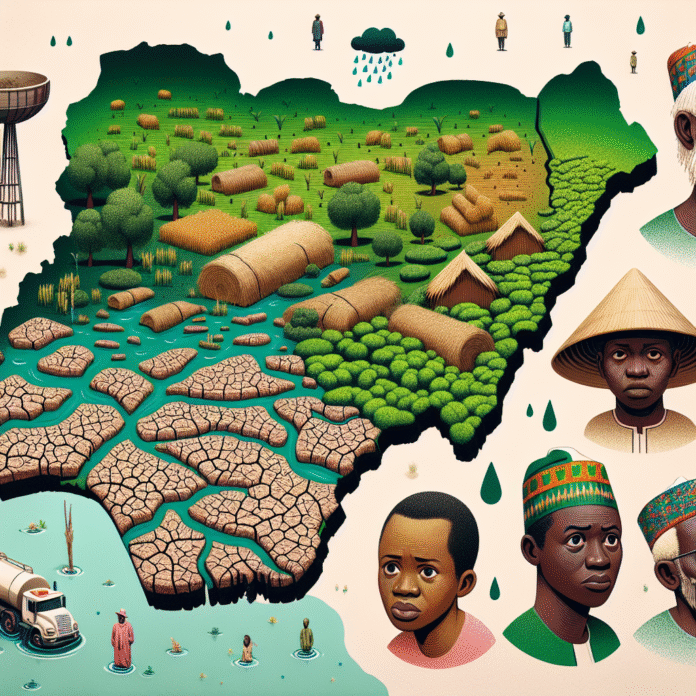Nigeria Faces Food Security Challenges Due to Water Scarcity
Nigeria’s Growing Food Security Crisis Linked to Water Scarcity
Nigeria is currently facing a significant food security challenge, exacerbated by the increasing difficulty in accessing water for agricultural purposes. This issue threatens not only the country’s agricultural productivity but also the livelihoods of millions of farmers and the overall well-being of its population.
Impact of Climate Change on Water Resources
One of the primary factors contributing to this crisis is climate change, which has led to erratic rainfall patterns and prolonged droughts in various regions of Nigeria. These changes have had a detrimental effect on traditional farming practices, making it increasingly difficult for farmers to rely on rain-fed agriculture. Consequently, many farmers are experiencing reduced crop yields, which directly impacts food availability and prices.
Challenges in Infrastructure and Irrigation
In addition to climate-related issues, inadequate infrastructure and a lack of effective irrigation systems further exacerbate the water scarcity problem. Many rural areas in Nigeria lack access to reliable water sources, and existing irrigation facilities are often poorly maintained or non-functional. As a result, farmers are unable to irrigate their crops effectively, leading to lower agricultural output.
Socioeconomic Consequences
The ramifications of food insecurity in Nigeria extend beyond agriculture. Rising food prices have led to increased levels of poverty and malnutrition, particularly among vulnerable populations. The government and various non-governmental organizations are under pressure to address these urgent challenges and implement sustainable agricultural practices that can help mitigate the effects of climate change and improve water management.
Potential Solutions and Future Outlook
To combat food insecurity, Nigeria needs to invest in sustainable irrigation systems, improve water management policies, and promote climate-resilient agricultural practices. Additionally, enhancing education and resources for farmers can empower them to adopt innovative techniques that optimize water usage. International partnerships and funding could also play a crucial role in developing infrastructure and technology to better support Nigeria’s agricultural sector.
In summary, Nigeria’s food security dilemma is deeply intertwined with water scarcity, driven by climate change and inadequate infrastructure. Addressing these interconnected issues is essential for ensuring the nation’s agricultural sustainability and the well-being of its people.
